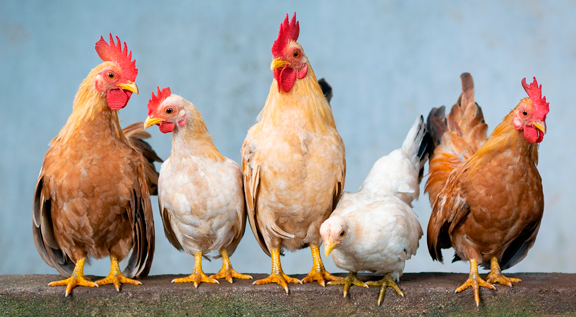
Image: Pixabay
Dutch health authorities said on Thursday (20/10) that they have culled around 300,000 chickens following this year's largest outbreak of highly contagious bird flu, saying nearly six million birds have died so far in the ongoing epidemic. The latest outbreak of a highly contagious H5 strain of the virus has hit a poultry farm in Heythuysen in the southern province of Limburg, Dutch food safety agency NVWA said.
“We immediately instituted a transport ban” on all poultry products, the NVWA said, adding that it includes eggs, poultry meat and poultry manure. Five other farms within a three-mile radius “are being tested and will be monitored for bird flu over the next two weeks,” the agency said in a statement.
{module Form RD}
Agriculture Minister Piet Adema warned in a letter to parliament last week that the situation was “not sustainable”. “Not for animals, not for poultry farmers, not for society”, said the minister. “So I think we need to intensify our approach to bird flu,” said the minister. The country has ordered all birds to be kept indoors from October 5 in an attempt to contain the virus.
Authorities are trying to prevent farmed birds from coming into contact with wild migrants to prevent the spread of the virus. The Netherlands was hit hardest in 2003, when a deadly strain of H7N7 bird flu broke out, killing at least one person and infecting 255 livestock, leading to the culling of 30 million birds, according to the National Library of Medicine.
By: Leonardo Gottems | agrolink










